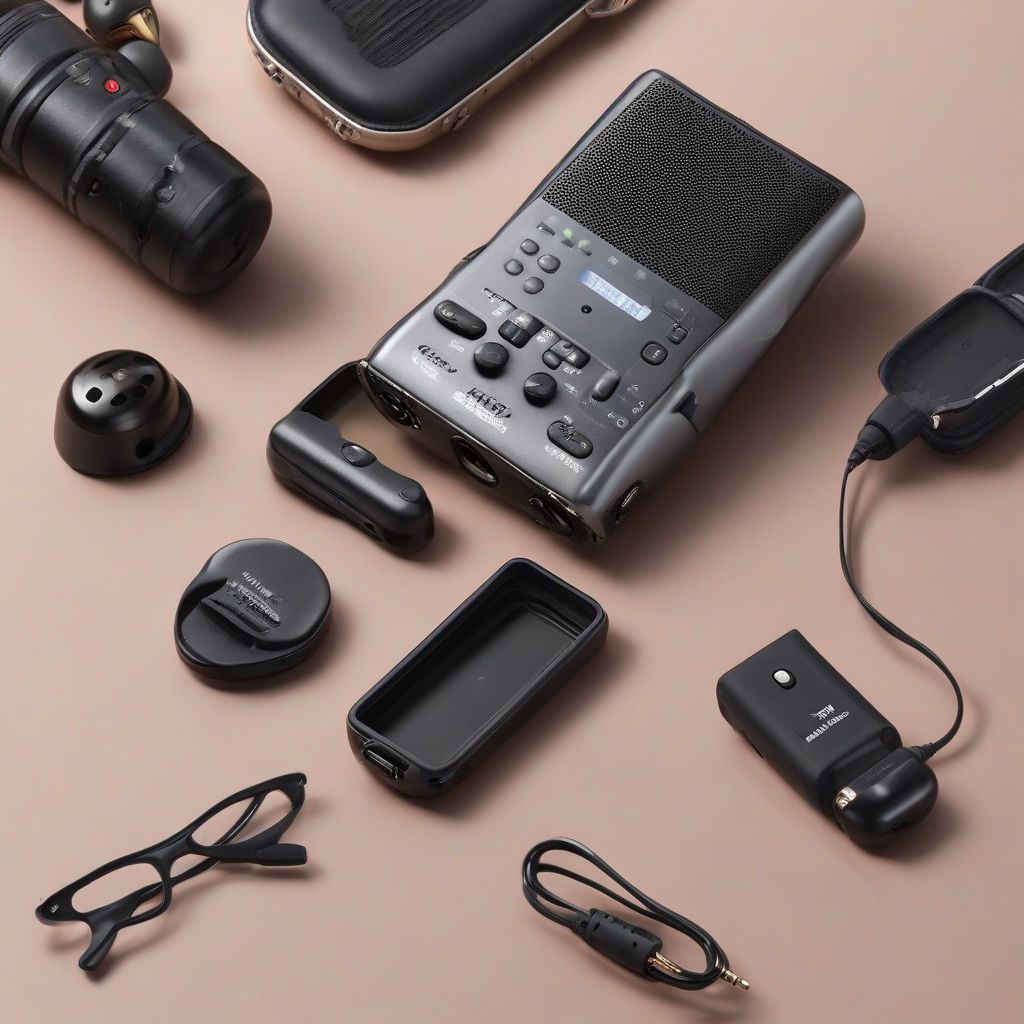Ever had a stroke of genius strike at the most inconvenient time? Maybe you’re on a crowded train, in the middle of your workout, or just drifting off to sleep. As a nutritionist and meal prepping coach, I know that inspiration can be fleeting, and trust me, you don’t want to miss those golden nuggets of wisdom.
That’s where a trusty portable audio recorder comes in. It’s like having a little pocket-sized secretary, always ready to capture your thoughts, ideas, and musings, no matter where you are. Whether you’re recording a voice memo, a melody that popped into your head, or even a lecture, these little devices are a game-changer for anyone who wants to stay organized and never miss a beat.
Finding Your Perfect Audio Companion: A Guide to Portable Recorders
Navigating the world of audio recorders can feel overwhelming, especially with all the options out there. But don’t worry, I’m here to break down everything you need to know to find the perfect recorder for your needs.
1. What’s Your Recording Style?
Before you jump into the deep end, ask yourself what you’ll be recording most often.
-
Voice notes and Dictation: If you’re primarily capturing quick thoughts, to-do lists, or dictating notes, a simple and user-friendly recorder with good voice clarity will do the trick.
-
Music and Performances: For musicians, vocalists, or even capturing live performances, you’ll want a recorder with multiple microphone inputs, higher fidelity recording capabilities, and features like adjustable recording levels.
-
Interviews and Meetings: When accuracy and clarity are paramount, opt for a recorder with features like omnidirectional microphones (to pick up sound from all directions), noise-reduction technology, and perhaps even external microphone compatibility.
2. Sound Quality: How Much Fidelity Do You Need?
Sound quality is measured in kilobits per second (kbps). Higher kbps generally translates to better audio quality.
-
Basic Recording (8-32 kbps): Suitable for voice notes, reminders, and simple recordings where sound quality isn’t paramount.
-
Good Quality (64-128 kbps): Ideal for lectures, meetings, and recordings where you need clear audio.
-
High Fidelity (192 kbps and above): Perfect for music, podcasts, and recordings where capturing nuanced sound is essential.
3. Features That Matter:
-
Storage Capacity: Choose a recorder with ample storage space (measured in gigabytes – GB), especially if you’ll be recording high-quality audio or for extended periods.
-
Battery Life: Look for recorders with long battery life, especially if you’re always on the move.
-
File Format Compatibility: Ensure the recorder saves files in a format compatible with your computer and other devices (e.g., MP3, WAV).
-
Ease of Use: Consider the recorder’s interface and controls. Is it intuitive to use? How easy is it to transfer files?
-
Durability: If you’re hard on your gadgets or plan to use the recorder in challenging environments, choose a durable model with a robust build.
 The best portable audio recorder
The best portable audio recorder
Top Picks for Portable Audio Recorders:
Here are a few highly-rated portable audio recorders:
- Zoom H1n Handy Recorder: Don’t let its compact size fool you; this recorder packs a punch. It’s perfect for beginners and offers excellent sound quality at an affordable price.
[amazon bestseller=”Zoom H1n Handy Recorder”]
- Sony ICD-UX570: This pocket-friendly recorder is known for its exceptional battery life and user-friendly interface. It’s ideal for students, professionals, and anyone who needs reliable recording on the go.
[amazon bestseller=”Sony ICD-UX570″]
- Tascam DR-05X Stereo Handheld Digital Recorder: The Tascam DR-05X is a versatile recorder perfect for musicians, podcasters, and anyone who needs high-quality stereo recordings.
[amazon bestseller=”Tascam DR-05X Stereo Handheld Digital Recorder”]
- Olympus WS-853 Voice Recorder: This recorder is all about clarity. It features excellent noise-reduction technology, making it perfect for recording meetings, lectures, and interviews.
[amazon bestseller=”Olympus WS-853 Voice Recorder”]
Tips for Crystal-Clear Recordings:
- Choose the Right Microphone: Some recorders have built-in microphones, while others allow you to connect external ones. Consider your needs and recording environment.
- Minimize Background Noise: Whenever possible, record in a quiet environment.
- Use Headphones: Always monitor your recordings using headphones to ensure the sound quality is up to par.
- Experiment with Placement: The position of your recorder can greatly impact sound quality.
Never Miss a Beat Again:
Whether you’re a creative professional, a student, or just someone who wants to keep their thoughts organized, a portable audio recorder can be a game-changer. By considering your needs, exploring the features, and choosing a recorder that aligns with your recording style, you’ll be well on your way to capturing every brilliant idea, no matter where inspiration strikes.
